'The Deepest Breath': Love and danger mix in Netflix's heart-wrenching freediving movie
- Oops!Something went wrong.Please try again later.
- Oops!Something went wrong.Please try again later.
For most of us humans, the aquatic dance is the same.
We dive into a pool or a lake or an ocean, perhaps hold our breath for a few seconds as we swim underwater, and then surface to blessed oxygen.
“The Deepest Breath,” a new Netflix documentary streaming now, transports viewers to the exotic world of freediving, whose elite athletes free fall and then resurface from depths of 300-plus feet while holding their breath for upward of four minutes.
Definitely do not try this on summer vacation.
But while the documentary does make clear the risks incurred by freediving devotees, it lingers longer on the way in which the sport can prove emotionally liberating – much as it is for the film’s protagonists, Italian freediving world champion Alessia Zecchini and Irish safety diver Stephen Keenan.
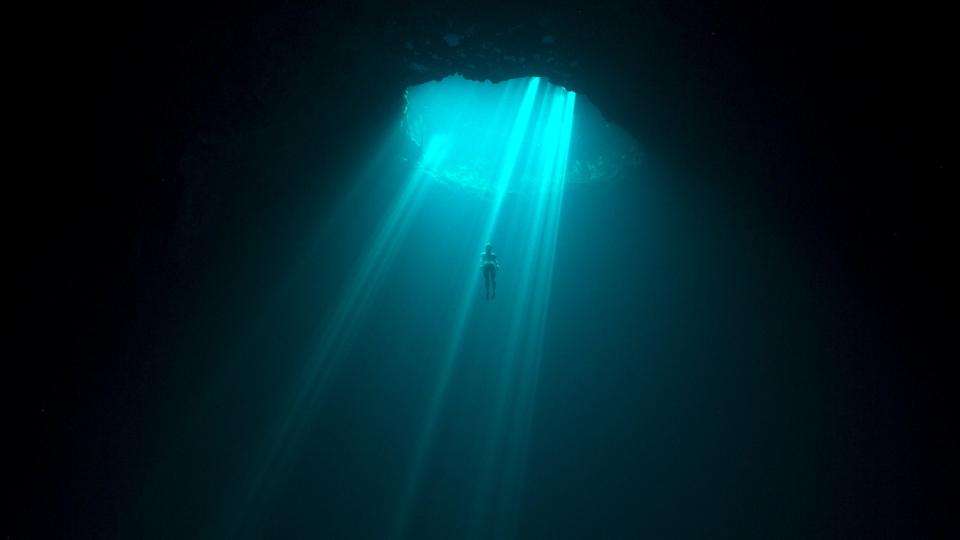
Just as the popular 2020 Netflix documentary “My Octopus Teacher” delivered landlubbers into the magical world of an oceanographer and his cephalopod pal, “The Deepest Breath” is a love story set in dramatic locations, from Egypt to the Bahamas. Call it a tribute to the devotion of two divers who shared a passion for the sea and each other.
"The thing about Alessia and Stephen is that it was just the start of something for them," says "Deepest" director Laura McGann. "The sacrifice made just does not get bigger."
Here are some things to know before you dive in:
What is freediving?
Humans have been freediving since we first ventured into the deep, holding our breaths to fish and explore. Today, some are still thrilled by the prospect of diving without clunky oxygen tanks, both for fun and for sport.
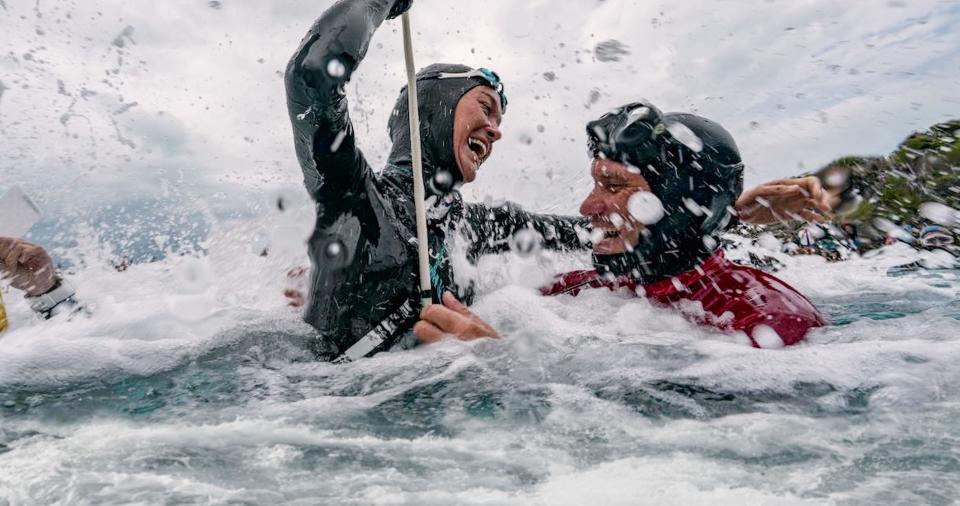
Competitive freediving is overseen by a few global governing bodies that ensure athletes dive under conditions that prioritize their well-being. Safety divers stand ready to bring a diver who passes out to the surface. The death rate in competitions is roughly 1 in every 50,000 competitive dives, according to Apneaology.com, a website dedicated to freediving. Recreational freediving is riskier, with about 1 death for every 500 dives.
"I can’t speak for all people who freedive, but I can tell you everyone I met wanted to go home for their dinner in the evening," says director McGann.
Remember how Kate Winslet held her breath to shoot 'Avatar 2'? That's a form of freediving
"Avatar: The Way of Water," James Cameron's epic sequel, is set in a fictional ocean-focused world. In order to get the shots he needed, the director had key cast members learn the basics of freediving breath-holding techniques. Kate Winslet broke Tom Cruise's record when she held her breath for more than seven minutes.
Luc Besson's 1988 film "The Big Blue" is considered a freediving cult classic. And there have been more than a dozen movies, many of them documentaries, made about the sport's top athletes, including one about Russian phenom Natalia Molchanova (2020's "One Breath"), who disappeared while freediving in 2015.
What distinguishes people who love freediving?
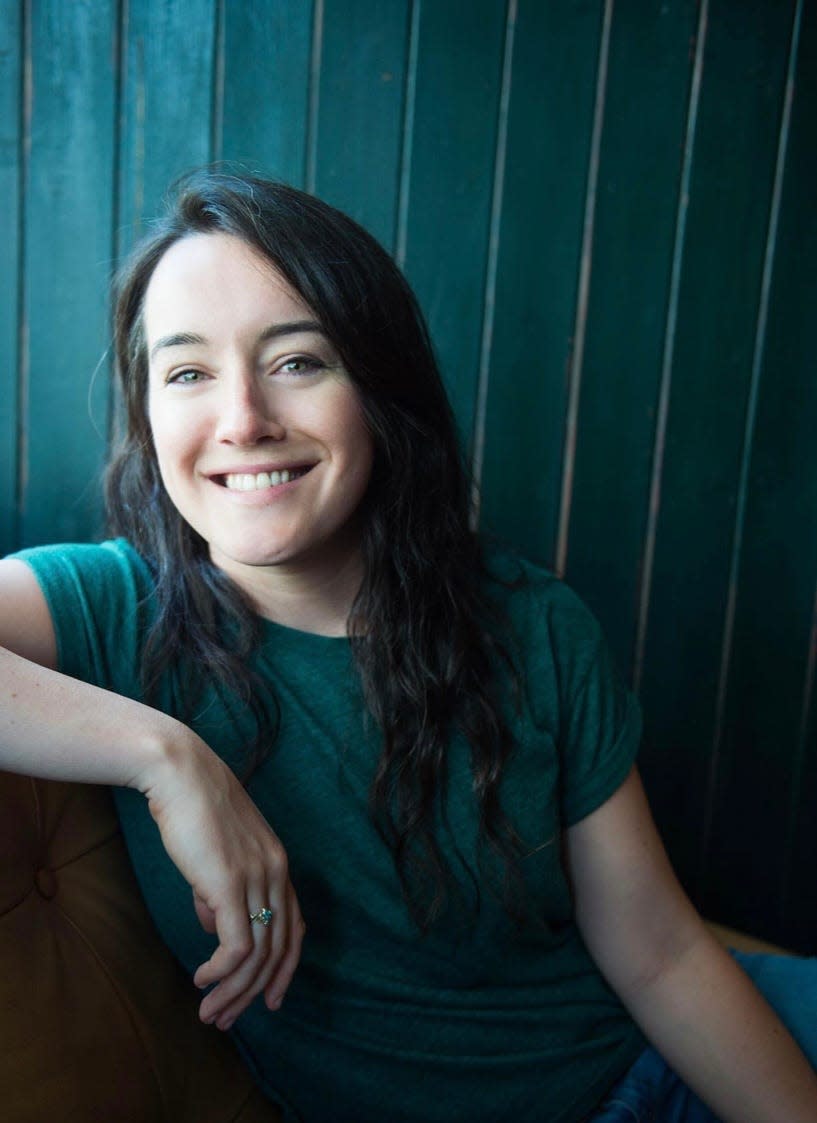
McGann says the time she spent around freedivers made it clear to her that "these people are all leaders, none of them are followers. They’ve stepped out of the mainstream to do this, and that makes for an interesting bunch of people."
As to why they dive, despite the inherent risks, McGann says freedivers will tell you "it's the freefall. You get to about 30 meters (100 feet) and then you just start to fall, and it feels like flying. You go into this gorgeous meditation on the ride down, but you have to keep a little of yourself conscious to make the trip back up."
Why are humans naturally predisposed to freediving?
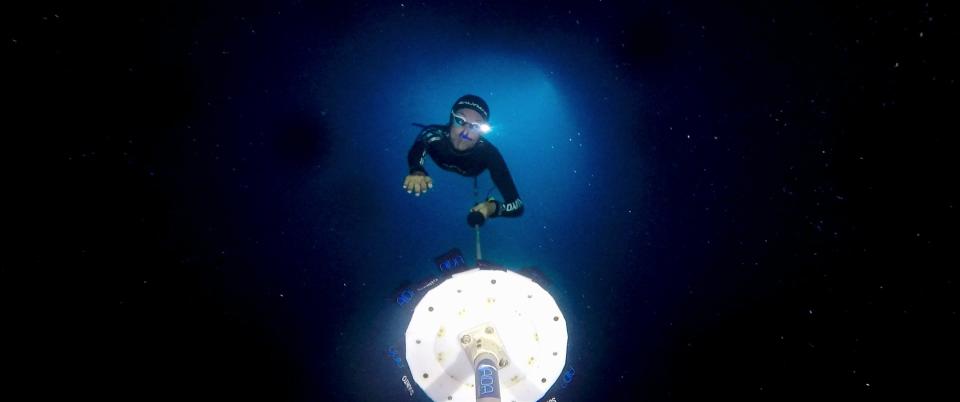
McGann says she's not on a mission to bring more people to freediving. Rather, she was "just moved by Stephen and Alessia's story as well as their love of the ocean, which I know is a place that does so much for my own mental health, just putting on a snorkel and fins and looking at the kelp in the Irish Sea."
In research for her movie, McGann learned the human body, once submerged in water, has a natural response that extends a breath. "There's a physical reaction to having water on your face, which triggers the mammalian dive reflex," she says. "It all goes back to where we came from as humans, we crawled out of the sea."
McGann tried freediving while filming on location, but the trip was short. She made it only about 10 feet down before the pressure in her ears forced her to come back to the surface. "But it was beautiful," she says.
Does Alessia Zecchini still freedive?
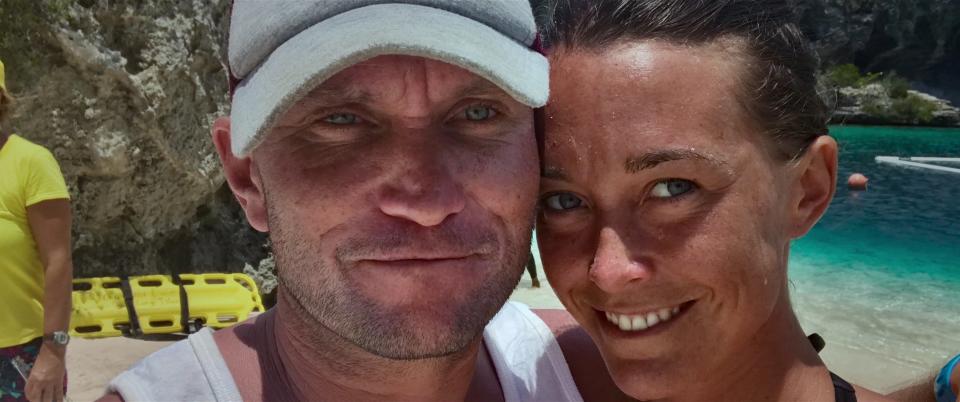
More than ever. In fact, she recently set a new world record by diving to 351 feet and back, which required holding her breath for three minutes and 26 seconds.
McGann says she was nervous showing her documentary to Zecchini for the first time, but when the screening ended, she sensed some relief from the diver.
"She said 'Thank you,' and I just burst out crying," says McGann. "The next day, she asked me for a copy so she could show some friends. She said, 'Showing it saves me from having to explain what I went through.' "
From 'Extraction 2' to 'Creed III': Here are 15 movies you need to stream right now
This article originally appeared on USA TODAY: 'The Deepest Breath': Netflix freediving movie will break your heart

